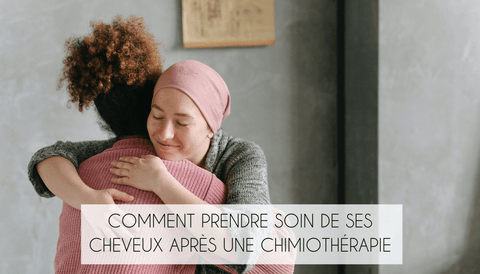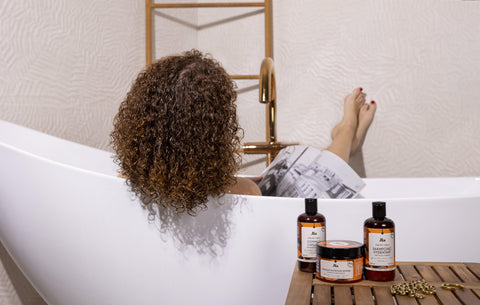Take care of your hair and scalp after chemotherapy
Chemotherapy is a difficult test for the body, and one of the most visible side effects is hair loss.
After going through this difficult period, it is quite natural to want to find healthy hair and a peaceful scalp.
In this article, we will explore the essential steps to take care of your hair and your scalp after chemotherapy.
- Patience and understanding
First of all, it is important to understand that hair regrowth after chemotherapy can take time.
Be patient and don't rush. Each person is unique, and the regrowth speed can vary. It is normal for your hair to grow back in a different texture or even in a different shade.
- Sweet cleaning
When your hair starts to grow back, it is crucial to clean it gently. Opt for soft shampoos without aggressive chemicals.
It is absolutely necessary to avoid shampoos containing sulfates because they can be irritating for the scalp already weakened.
- Hydration
Chemotherapy can make your hair drier and more brittle. Use conditioners or hydrating hair masks to restore the softness and shine of your hair.
Products based on natural oils such as argan oil, coconut oil (mask) and sweet almond oil or castor oil (after shampoo) can be particularly beneficial.
- Avoid excessive heat
The frequent use of hair dryers, straightening irons or bining rooms can damage your fragile hair. Let your hair dry naturally as much as possible to avoid additional damage. If you need to use heating devices, always use a thermal protector to minimize the damage.
- Balanced diet
A balanced and nutrient diet is essential to promote the growth of healthy hair. Make sure you consume enough protein, vitamins and minerals, including biotin, vitamin E, zinc and iron.
Consult your doctor or a nutritionist to get specific advice to your situation.
To overcome this problem, you can also opt for food supplements!
- Sun protection
The newly pushed hair is more sensitive to the damage caused by the sun. When you are outside, wear a hat or use hair products containing a UV filter to protect your hair and scalp from the harmful rays of the sun.
- Consult a professional
For a more personalized hair care routine, consult a hairdresser or a hair specialist.
They can give you specific advice to your hair type and your situation. They can also recommend products adapted to your needs.
- Listen to your body
Please note: finally, it is essential to listen to your body.
If you notice persistent problems with your hair or scalp, consult a dermatologist or an oncologist. They can provide additional treatments or recommendations to ensure the health of your hair and scalp.
In conclusion, taking care of your hair and scalp after chemotherapy requires patience and diligence. With an appropriate routine and a balanced diet, you can contribute to healthy hair regrowth and recovering self -confidence.
Remember that each person is unique, so don't be discouraged by temporary differences in the texture or color of your hair. Your interior beauty always shines more than ever.
Jiablog tells you very quickly for a next article!




Comments (0)
There are no comments for this article. Be the first one to leave a message!